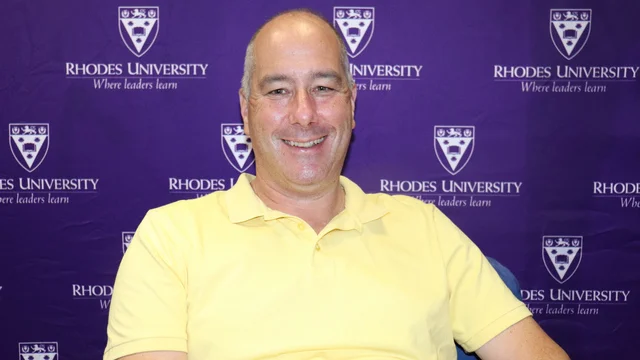
After successfully incorporating a Mental Health and Wellbeing course as part of its first-year psychology curriculum, the Vice Chancellor’s Mental Health Task Team decided to cater for staff and academics and train them on Basic Counselling Skills. Head of the Department of Psychology at Rhodes University and Chairperson of the Task Team, Professor Charles Young, said this was a mandate given by the Vice-Chancellor.
Due to lockdown restrictions, Prof Young said the Task Team was concerned that staff and academics do not interact much anymore and have little face-to-face contact with one another.
“A lot of staff members spend time informally counselling their colleagues and students but are not equipped to deal with such– while this has become inevitable labour for front line staff. Literature also tells us that when people go through difficult times, they go to their peers, friends, and colleagues first. We then thought it would be great to equip staff and academics with basic skills on how to deal with people’s psychological distress and how to offer support to their colleagues. For this project, we approached a local psychology counselling psychology practice, called Soyisa Consultancy, under the leadership of Dr Lumka Qangule, to provide the training. She is no stranger to Rhodes University as she also teaches our Psychology masters students,” explained Prof Young.
A call was made through an internal communications platform, and the Task Team received an overwhelming appetite from staff, academics, and postgraduate students. There were six 2-hour sessions held via Zoom between July and September 2021.
Dr Qangule said the workshop was incredible, and participants came up with real-life scenarios as case studies and participated fully. She recommended the following:
- Face to face sessions for practicals or the entire workshop if possible.
- More time must be afforded (e.g. eight x 2hrs sessions instead of six) so that there is enough time for participants to practice the skills.
- Participants be given certificates of attendance for completing this course.
- A clear breakdown of what is to be covered each day in the workshop to be given to participants beforehand.
Prof Young said the Task Team hopes to offer the workshop again and to perhaps involve all departments, so that staff can know they have colleagues who they can turn to when necessary.
“We want staff and academics to feel empowered to assist their colleagues who are in distress so that the psychologists and the counselling centre can deal with more severe cases. The more people who can do this, the better for the community of people who study and work at Rhodes University,” concluded Prof Young.
The funds for this workshop were taken from the special Coronavirus Response Fund.
